Thalassophobia is a persistent and intense fear of deep bodies of water such as the ocean or sea. What makes this phobia different than aquaphobia — the fear of water in general — is the fact that it centers on vastness, darkness, and depth. People who have this condition are not terrified of getting wet, but rather the might and mystique behind the waves.
While thalassophobia is not recognized as a distinct disorder by the DSM-5, the diagnostic manual of mental disorders used by psychiatrists and other mental health professionals, it’s still relatively common. And the subreddit of the same name is a vivid example of that. Created in June 2013, it unites 969,000 thalassophobes, sharing triggers and discussing symptoms.
So, in an attempt to shed some light on this community, we at Bored Panda decided to put together a list of their most popular posts.
#1 Kayaking With The Giants!
#2 Grand Turks 700 Ft Drop
Online groups that get this big often suffer from huge streams of content that flood them with questionable pictures and videos, diminishing the overall experience of browsing them, but this subreddit manages to stay clean. Part of it can be attributed to the clear rules that promote being nice and courteous, and allow no jokes, memes, or cartoons, no reposts, and no gore.
But of course, having an active moderator team that make sure members adhere to these rules helps tremendously as well.
We contacted the moderators of ‘Thalassophobia’ and they were kind enough to have a little chat with us.
“Our core mod group has 4 active members, which is a small team for a subreddit of our size,” they told Bored Panda. “Compared to other subreddits of our size, we don’t feel like we police posts or comments as much. The reason we do so little policing can probably be explained by our subreddit’s niche context that revolves around a very specific set of inoffensive content. We’re just a bunch of people sharing stories, images, and videos of bodies of water that leave us in awe, wonder, and trepidation. Whenever we do police content, it’s usually because it’s a repost or focuses on a sea creature rather than the vastness of the ocean or the unknown depths of a body of water. We prefer for the ocean/water to play the primary role in content.”
#3 Orcas In The Waves
#4 This Seaweed Through Clear Water
#5 Words Fail Me
The mods said the ‘Thalassophobia’ community is very passionate and filled with both ocean-fearing and ocean-loving people. “Based on previous polls we’ve had in the subreddit, it’s split roughly 50/50 between those [two groups].”
“Although half of the community loves the ocean, everyone understands that there are people with a phobia of large/deep bodies of water and everyone is respectful of that in their posts and comments. It’s a great community to be a moderator in,” they explained.
Specific phobias tend to fall into these five categories:
- Animal type;
- Blood-injection type;
- Natural-environment type;
- Situational type;
- Other.
Thalassophobia is usually considered to belong to the natural-environment type. These fears are experienced more frequently, with some studies also suggesting that water-related phobias are more common among women.
#6 Is To Me Or Are Black Tiled Pools Terrifying
#7 British Underwater Photographer Of The Year Winner 2022
#8 Underwater Waterfall
#9 “Uhhhh, There’s More Than Just Kelp And Angelfish Down Here, Over”
Thalassophobia shares symptoms with other specific phobias, such as claustrophobia, and includes:
- Sudden onset of anxiety or fear;
- Shaking and trembling;
- Sweating;
- Dry mouth;
- Increased heart rate or heart palpitations;
- Difficulty breathing, including hyperventilating;
- Chest pain;
- Fear of losing control.
#10 Taken Off The Coast Of Southern California 2 Weeks Ago
#11 The Deadliest Stream In The World – It Looks Normal, But Underneath It Is Full Of Caves Of Powerful Fast Moving Water That Will Drag You Down. 100% Fatality Rate
#12 The Pacific Ocean
#13 That’s Creepy
The causes of specific phobias, including thalassophobia, are not entirely understood, and often differ from case to case. But according to a common explanation, it’s usually a combination of genetic and environmental factors.
Research shows that certain genes are associated with certain specific phobias, but as of yet no studies have looked at the genetics behind thalassophobia in particular. However, following the Darwinian theory of evolution, there should still be at least some.
#14 “The Big One”
#15 Beach Weather Is Upon Us!
#16 When You Fear Of Flying And Your Fear Of Water Meet Each Other
#17 A Howling Abyss
Think of it like this: our ancestors also came across deep bodies of water, and those who were cautious of the dangers they possessed may have avoided them, living longer to pass down their genes. This theory is supported by research that indicates that specific phobias are moderately heritable.
Although the exact percentage can vary, it has been found, for example, that for animal phobias, heritability is around 45%.
#18 Deep Water Swell
#19 Storm Coming Soon
#20 An Entire Street Submerged In The Deep
#21 The Eye Of S(E)auron.
Thalassophobia could also be caused by traumatic events, such as a childhood near-drowning experience, witnessing a shark attack, never learning to swim, or even being told scary stories of the ocean.
By associating a specific situation, such as being in deep water, with a panic response, over time a phobia of that situation can develop.
#22 Because All My Friends Say This Photo Of Me Freediving Gives Them The Willies
#23 Could That Be The Megalodon’s Den?
#24 The Image That Started It All
#25 Underwater Path. Magical Zakynthos Caves, Greece
Phobias are chronic conditions that can worsen over the course of life and limit one’s relationships and activities. The good thing is that they are also highly treatable, although the process isn’t always pleasant.
But only about 10-25% of people with a specific phobia ultimately seek help. This is likely due to avoidance behaviors, since treating a specific phobia does often involve confronting the feared stimuli.
#26 Taken From A Fishing Boat In Antartica
#27 An Abandoned, Flooded Mineshaft
#28 There’s Something Particularly Terrifying About The Idea Of Water You Can’t Even Float In
#29 Guadalupe Island, The Most Terrifying Place On This Planet
Exposure therapy is a popular and effective choice for treating specific phobias, including fear of the sea. During it, a person faces their feared stimuli in increasing levels of intensity.
For someone with thalassophobia, this might start with looking at photos of the sea on this subreddit, escalate to watching videos of the ocean or deep water, then visiting a big pool and taking a trip to the ocean. Through controlled exposure, the person learns that the feared stimulus itself is not dangerous, and they can begin to associate it with more positive outcomes.
#30 Jacob’s Well In Texas
#31 Swimming Next To A Ship In The Open Ocean, Miles From Land
#32 The Bottom Of An Iceberg
#33 Whirlpools Are Actually Terrifying, You Guys
#34 A Diver Riding A Giant Underwater Worm (Pyrosoma Atlanticum)
#35 Brine Pools Are Just The Scariest Shit
#36 Depth: Infinite Ft
#37 Apparently This Is The Sunken Goddess Sculpture- That’s All I Know But Look At How Big It Is!
#38 Walked About 30 Minutes Out During Low Tide To Read This!
#39 This Is An Under-Ice Observation Tube In Mcmurdo Station, Antarctica
#40 Anybody Who Wants To Take A Dip?
#41 Row Row Row Your Boat
#42 This Grounded Ship Looking Like A Giant Meg
#43 Fresh Water Always Creeped Me Out More Than The Ocean. The General Low Visibility And Feeling “Enclosed” With Whatever Was In The Water Was Always Gnawing At The Back Of My Mind.

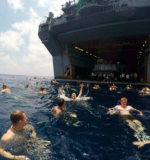
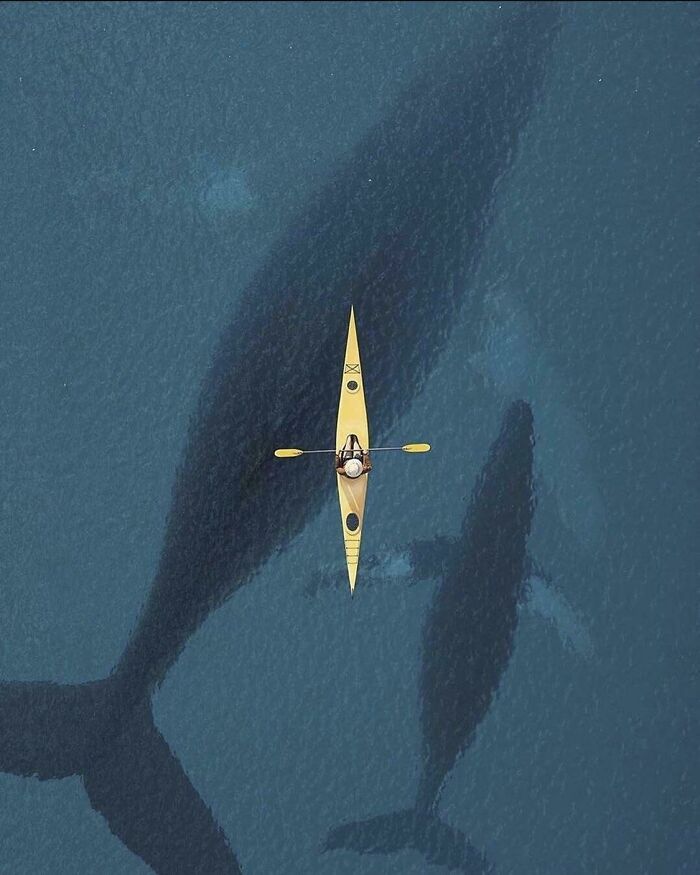
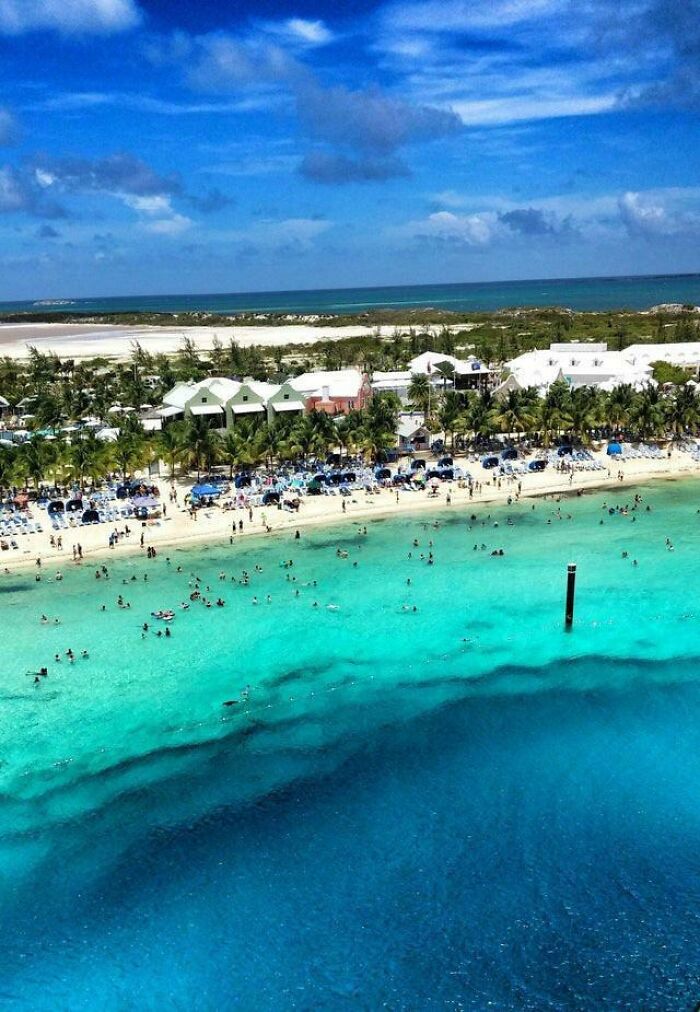
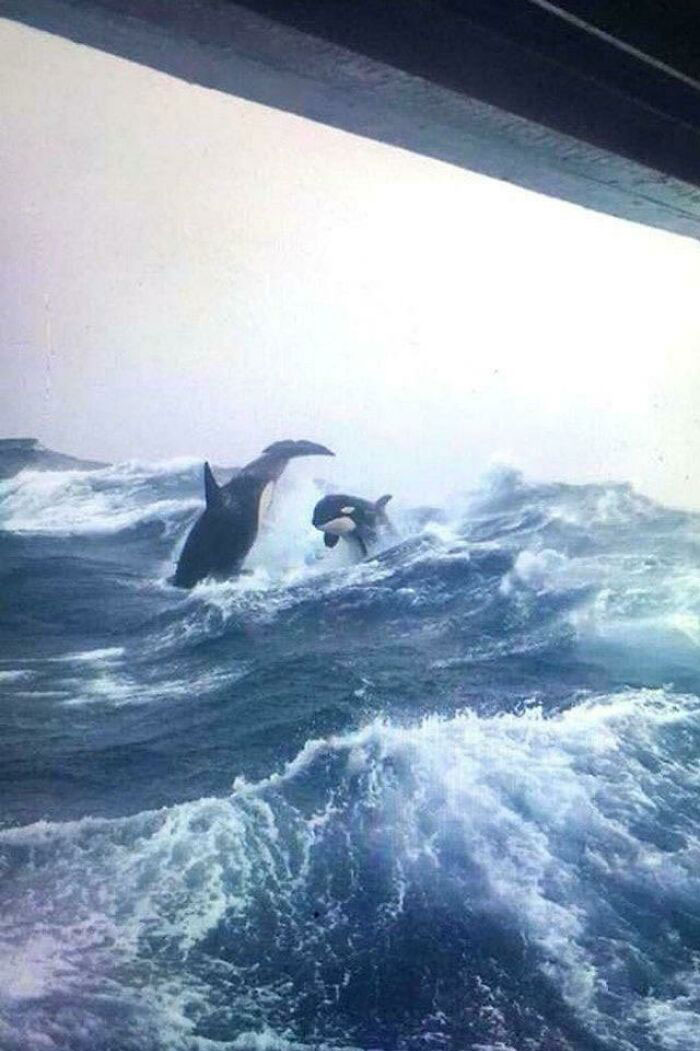
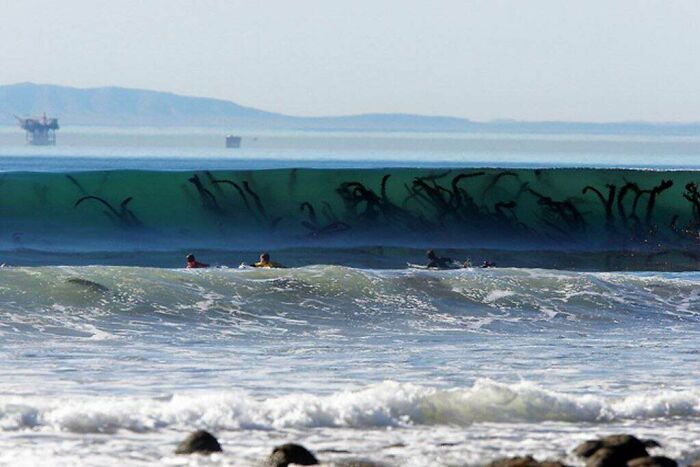
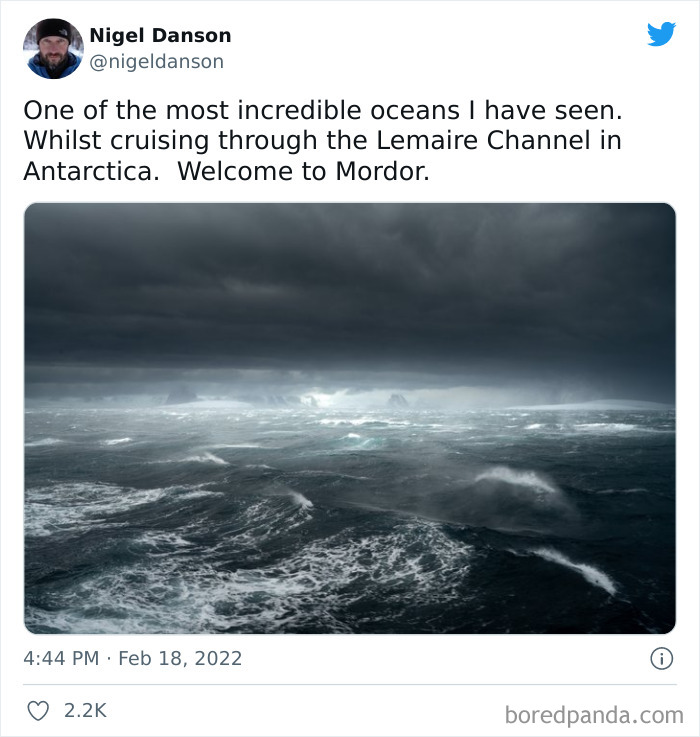
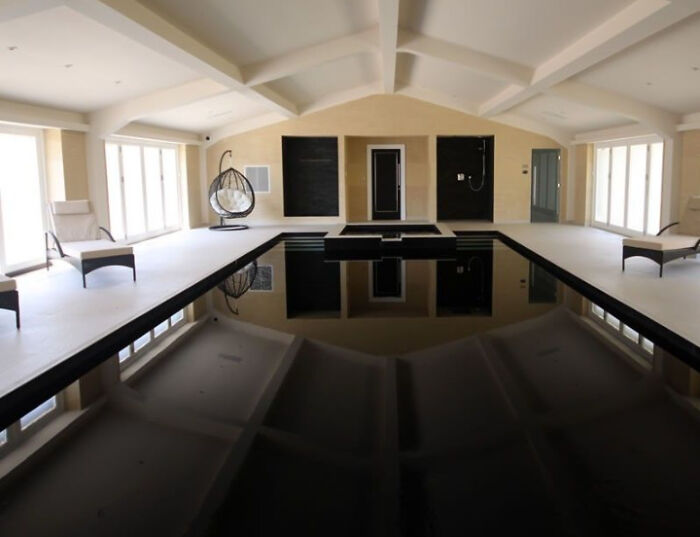
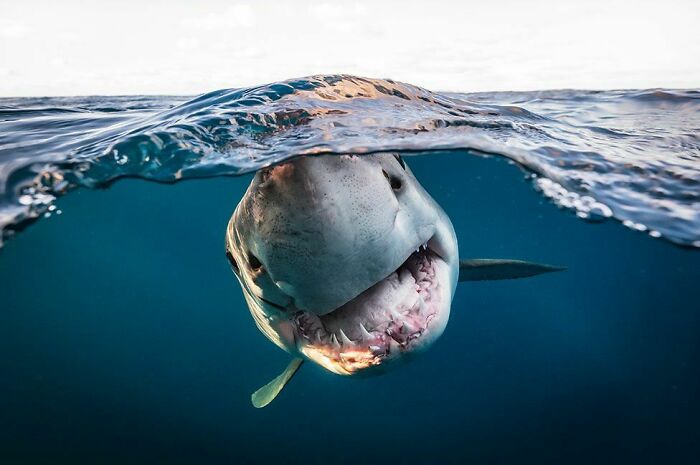
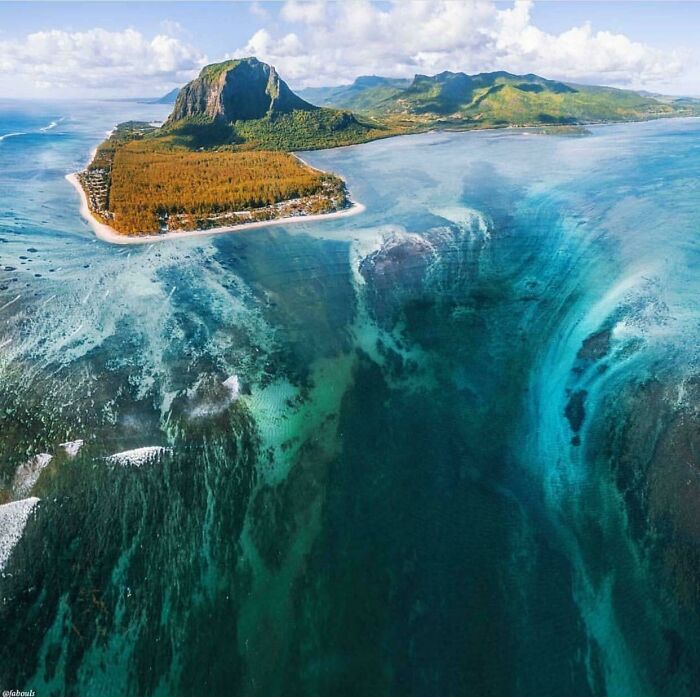
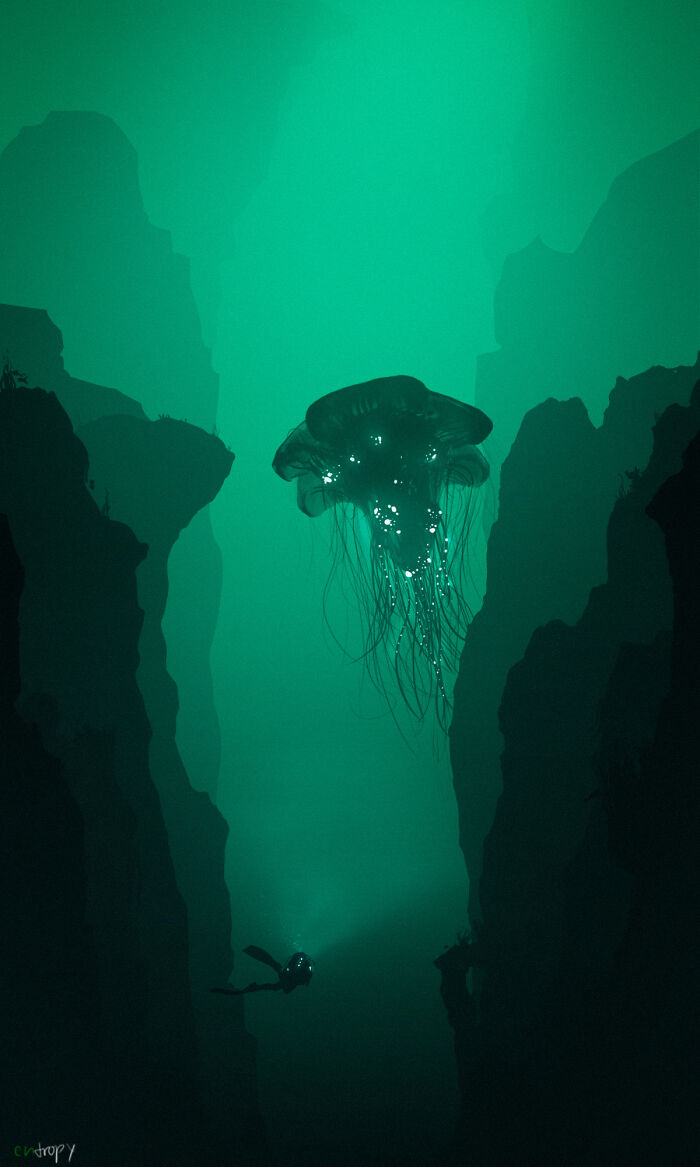
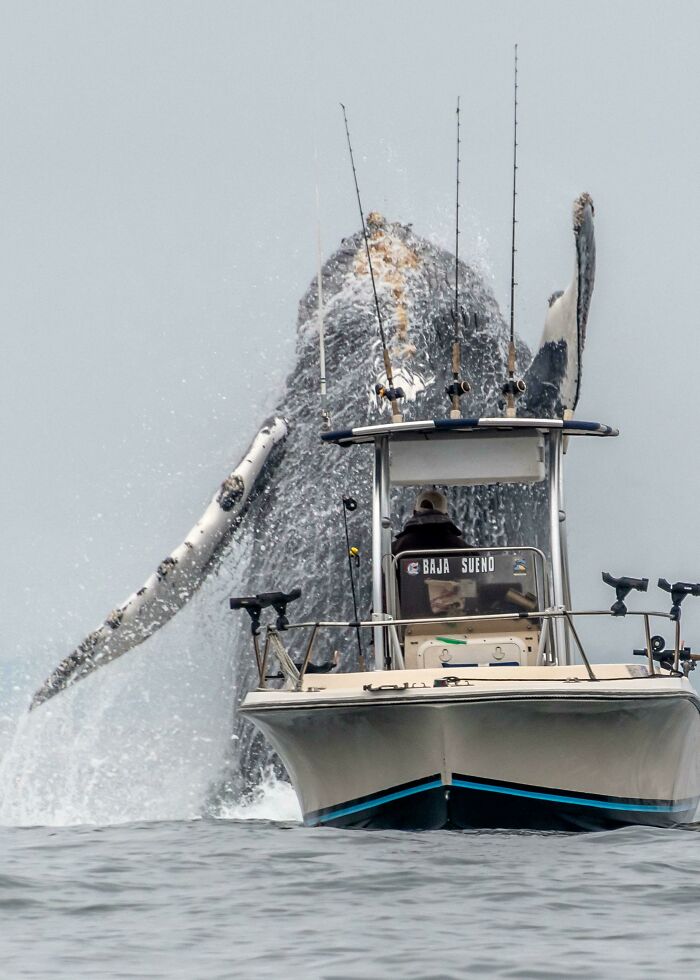
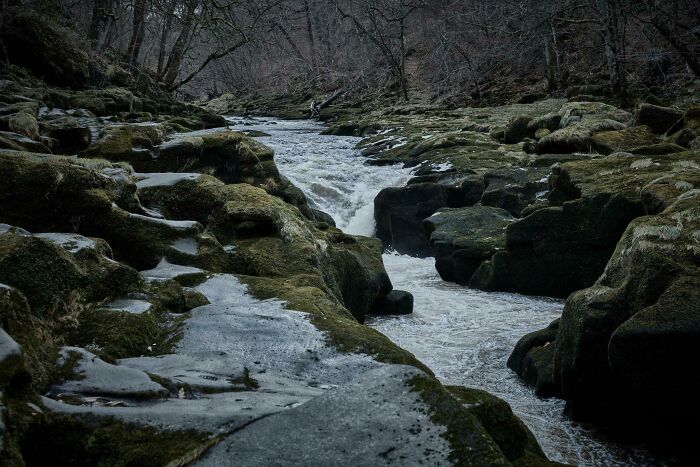
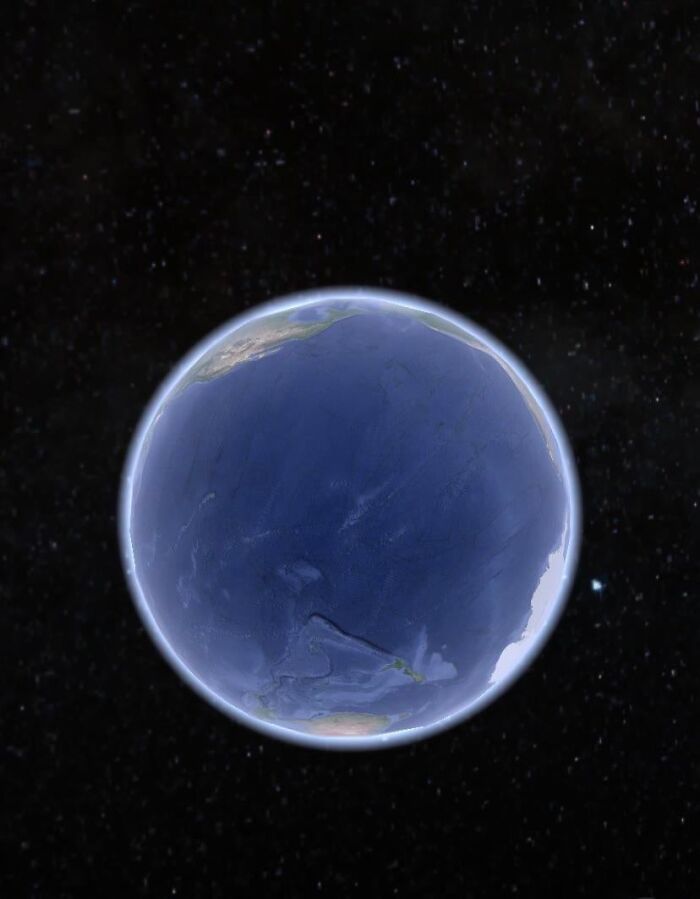
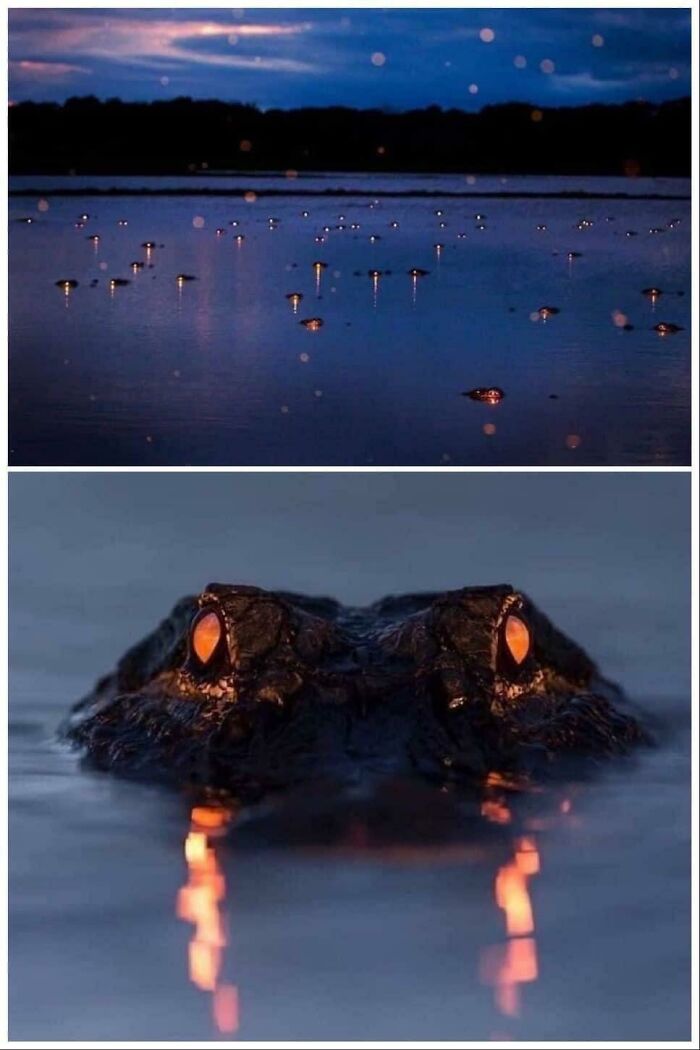
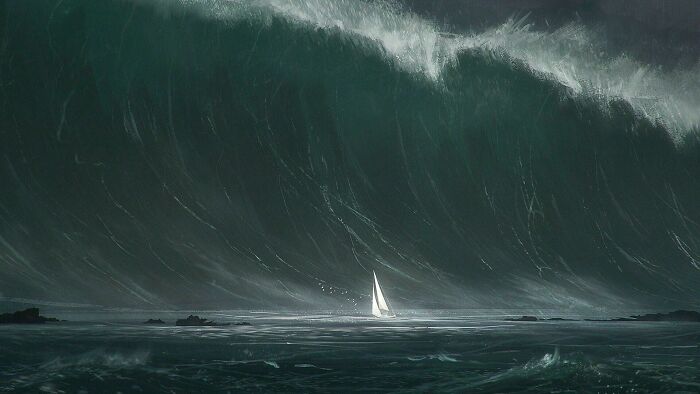
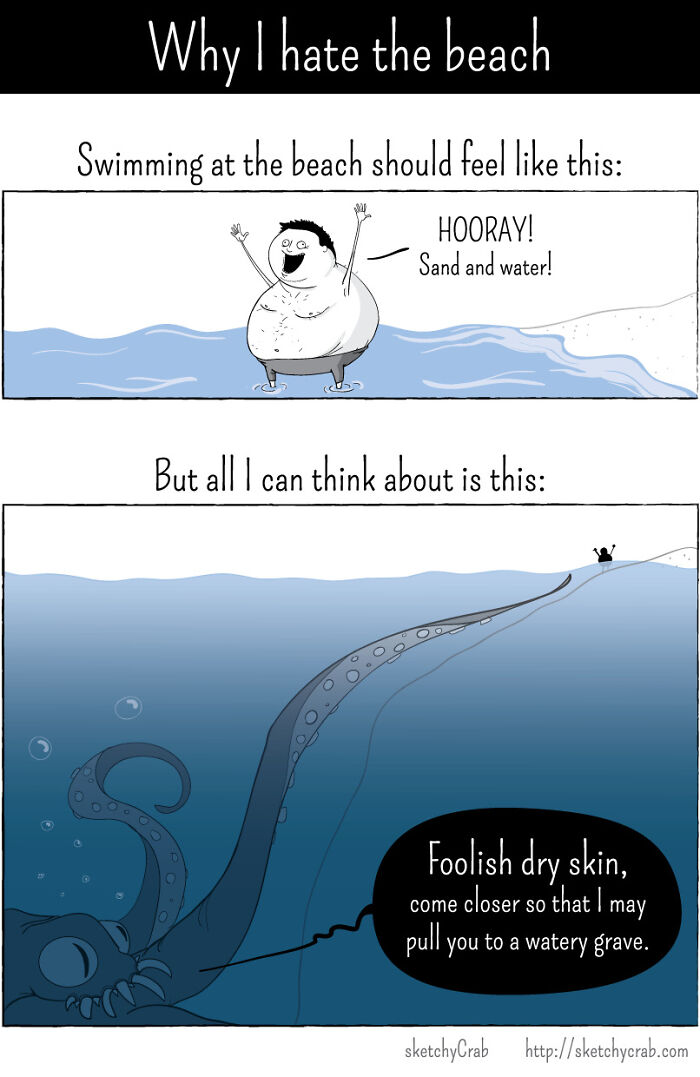
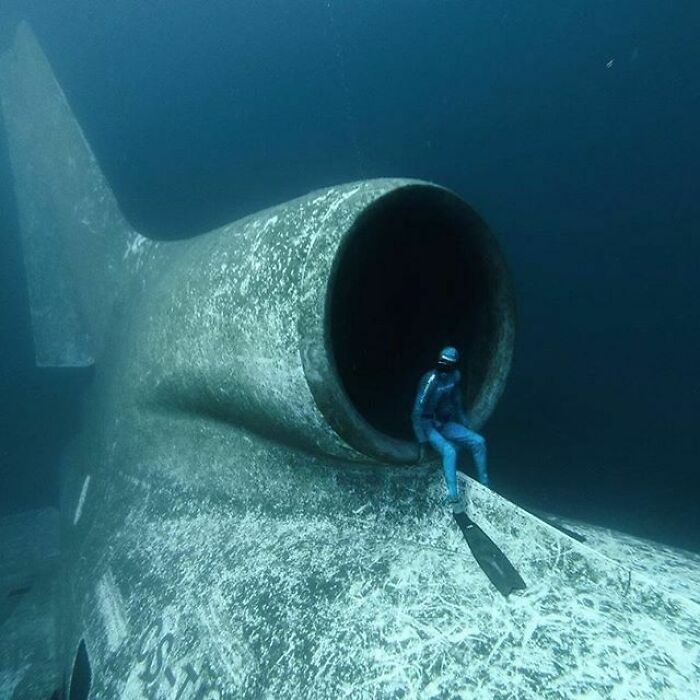
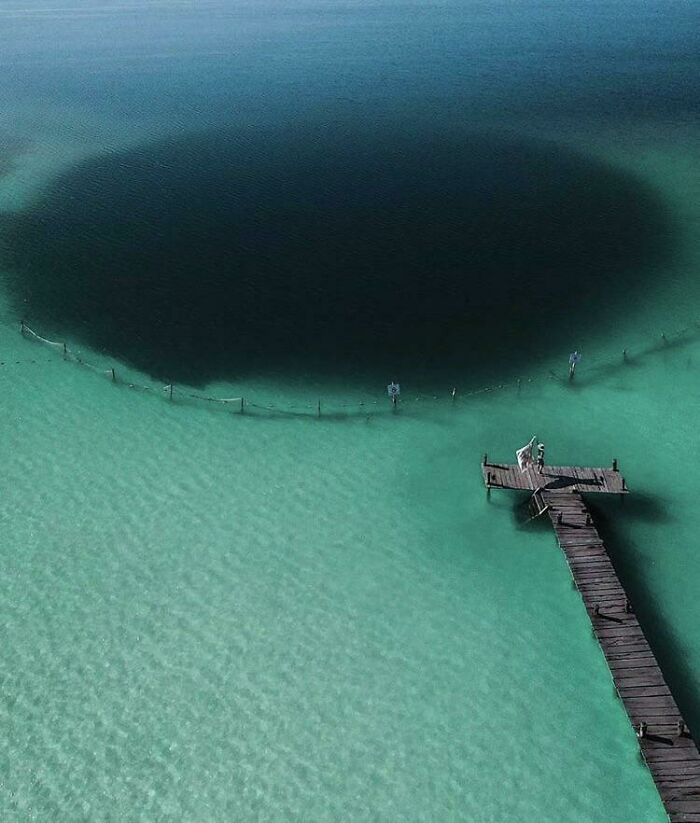
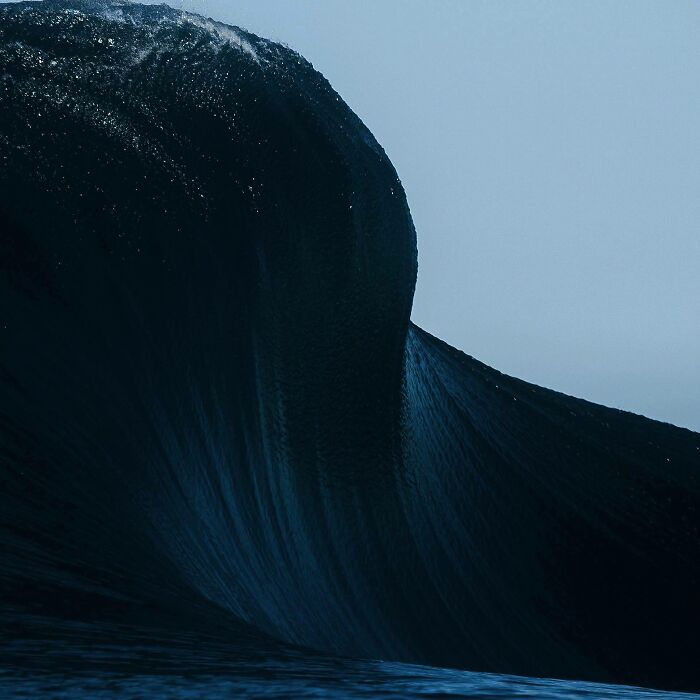
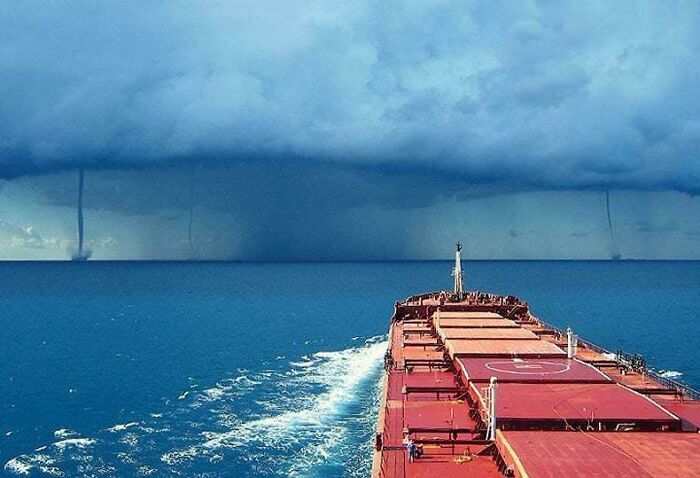
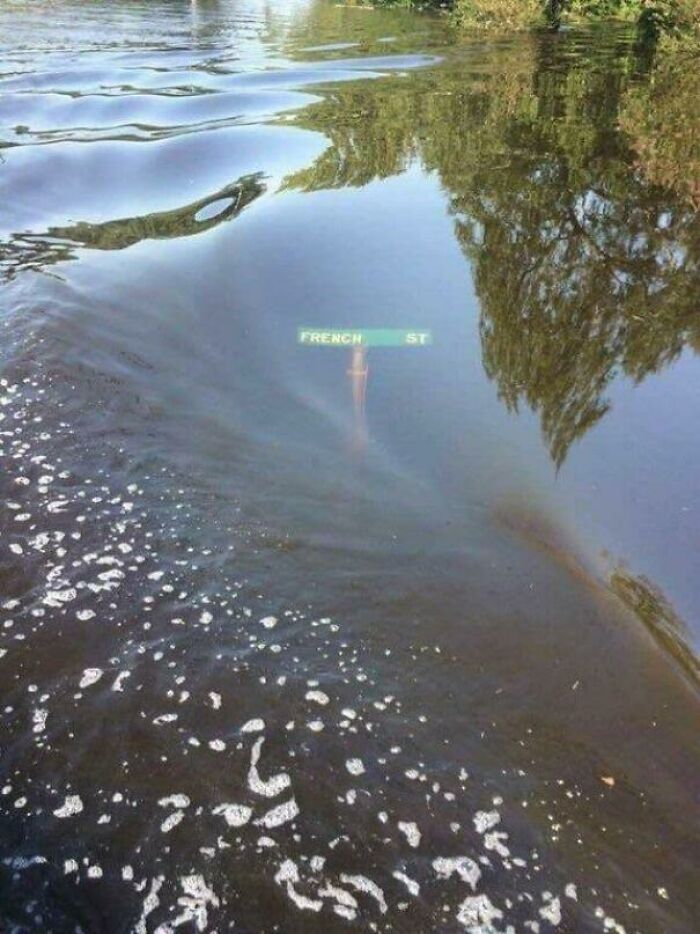
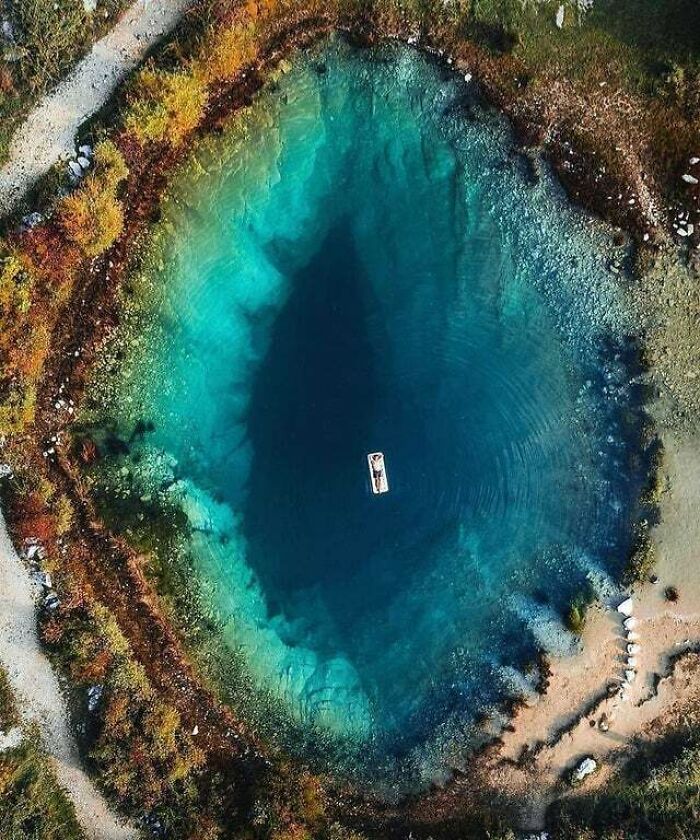
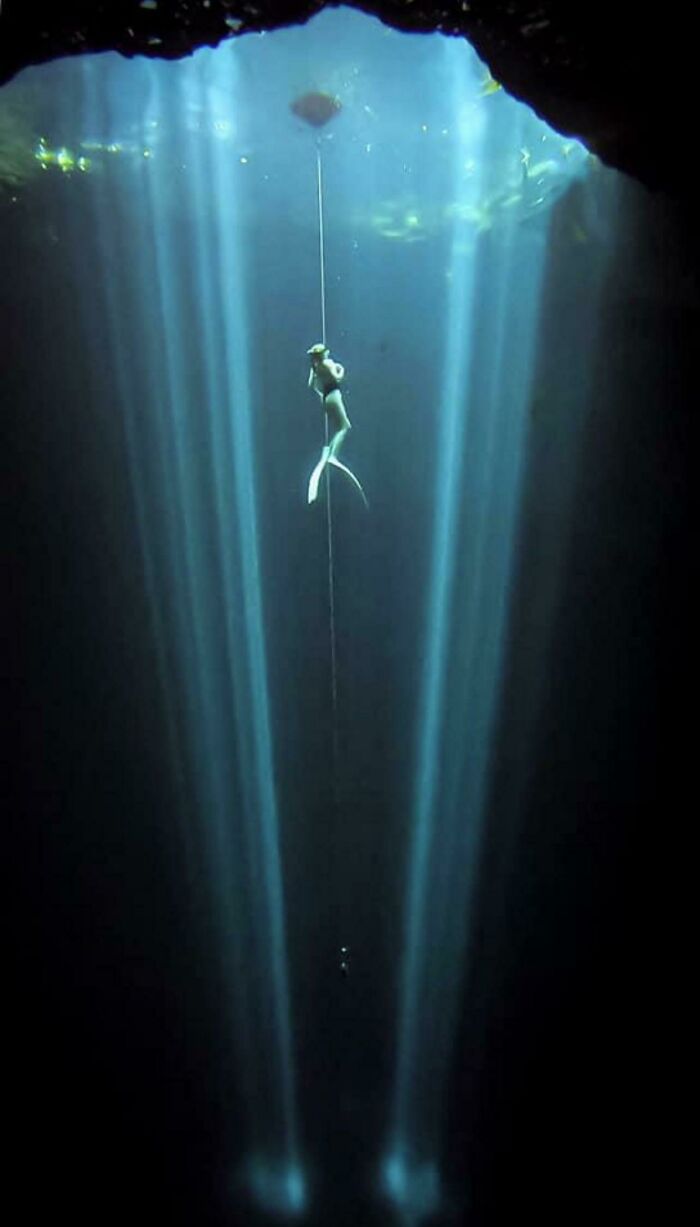
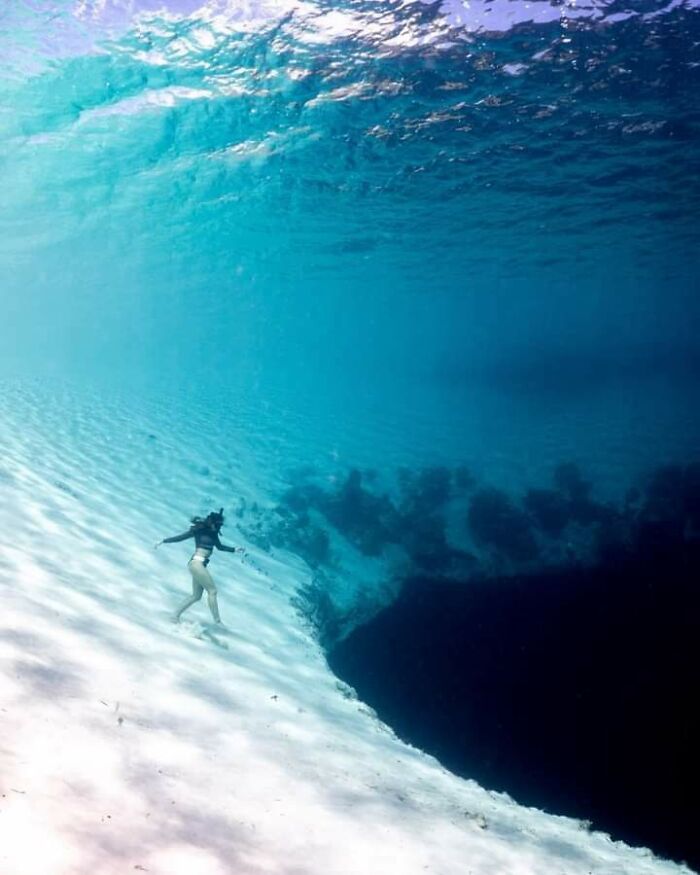
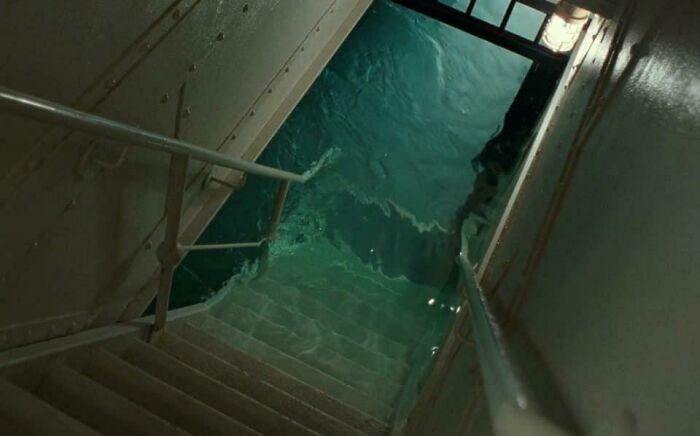
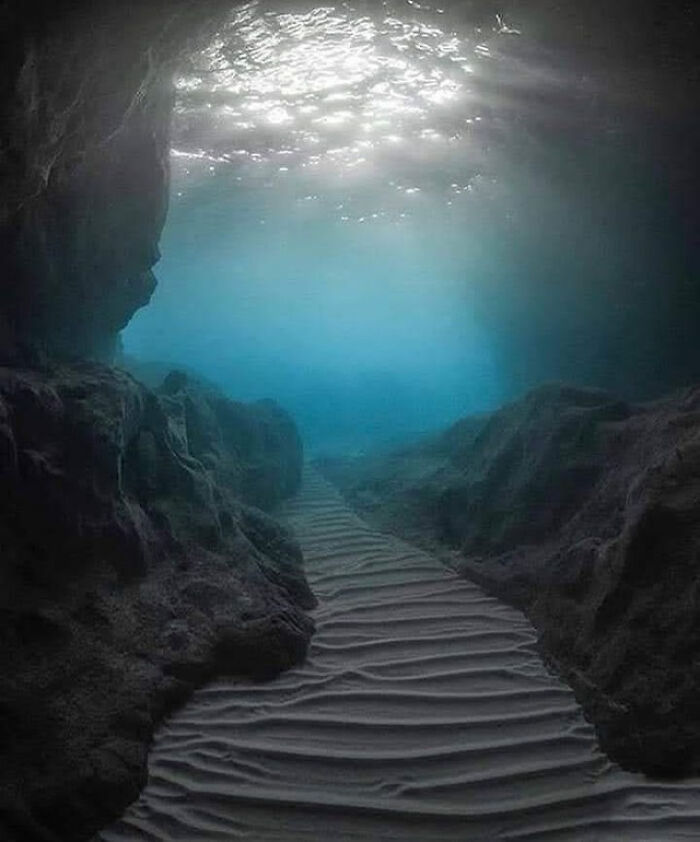
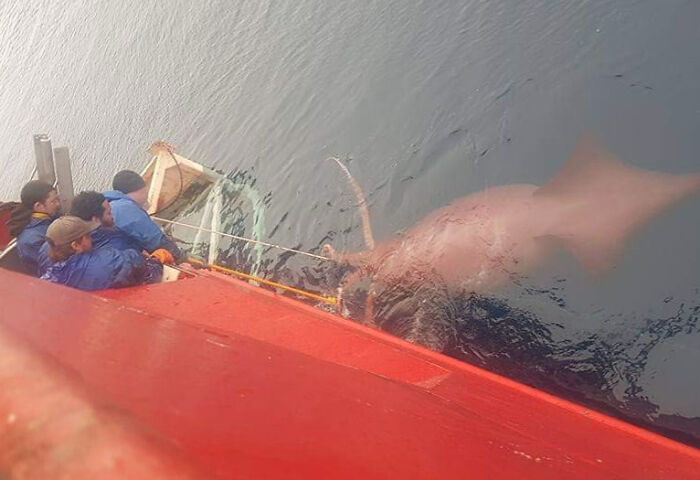
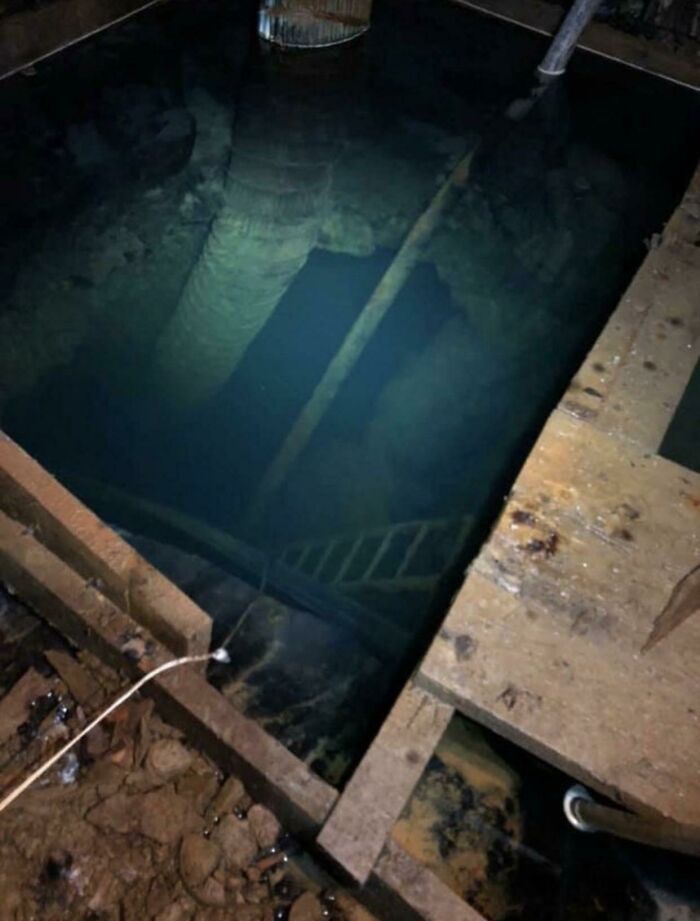
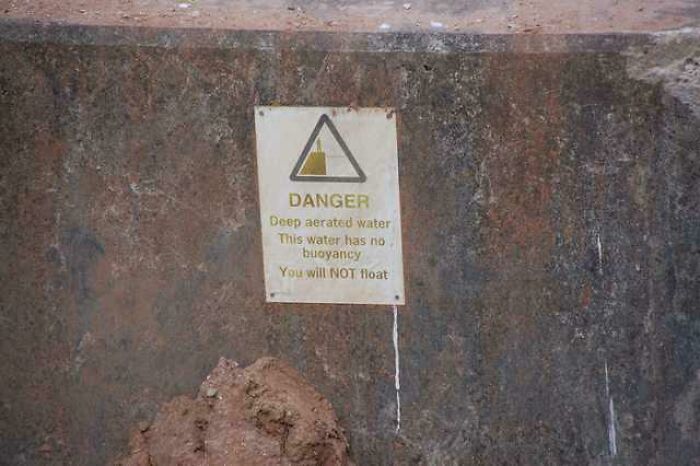
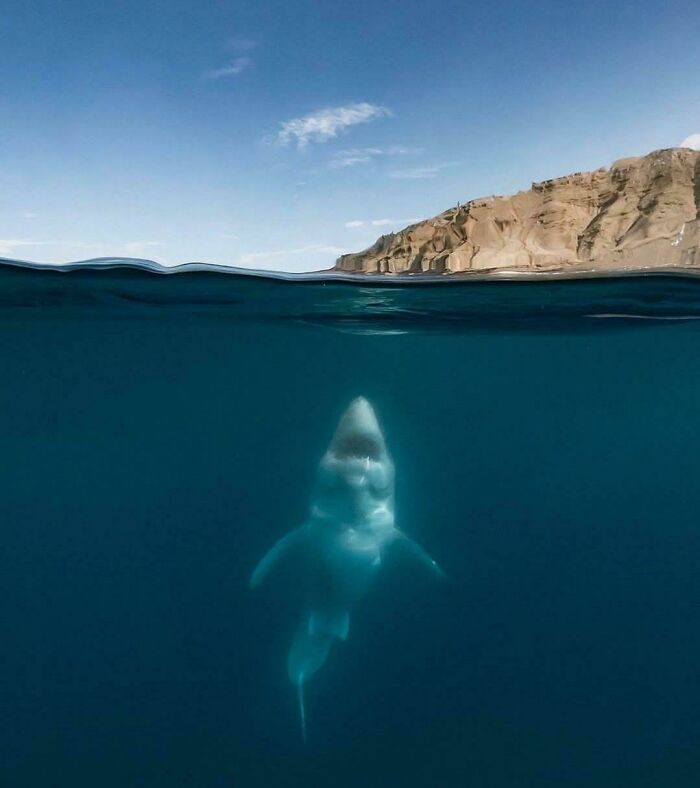
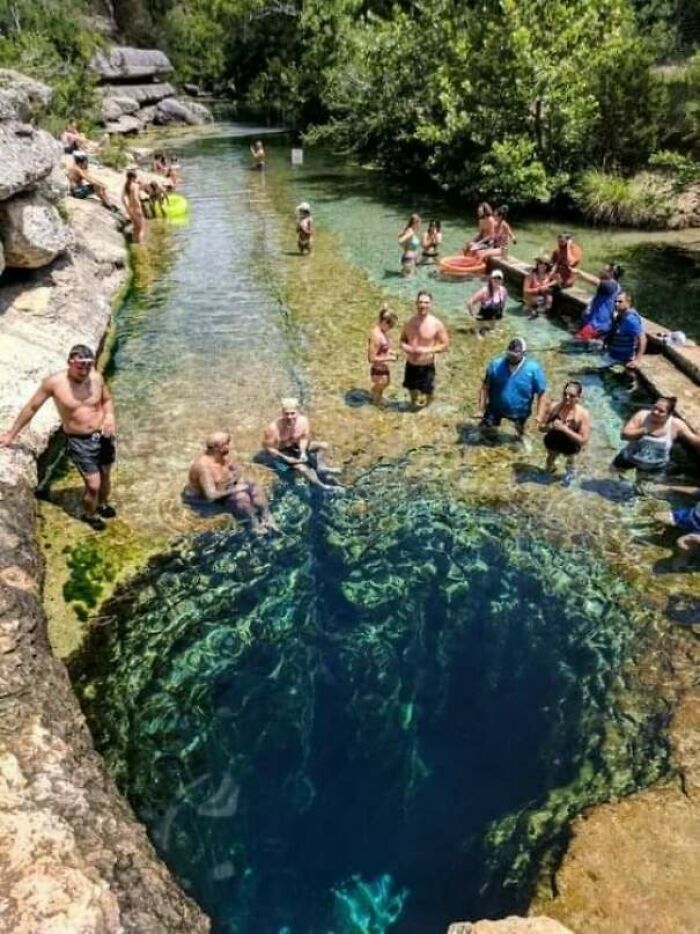
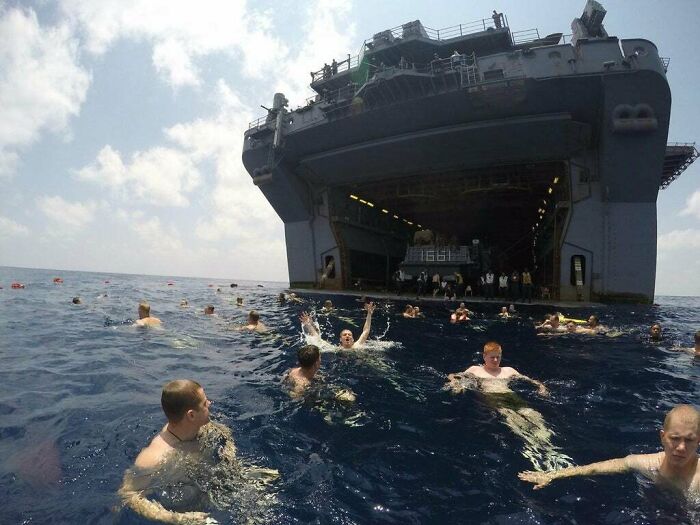
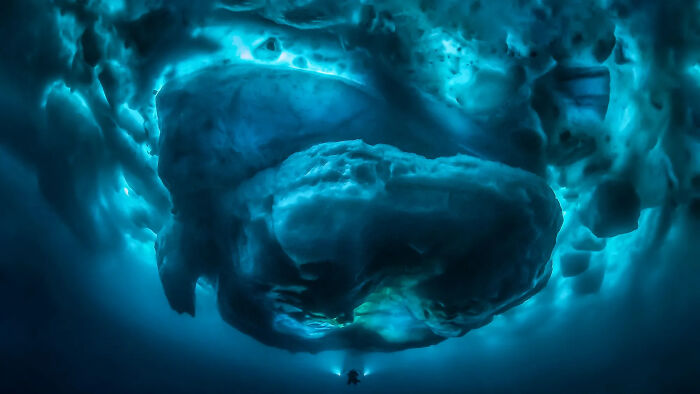
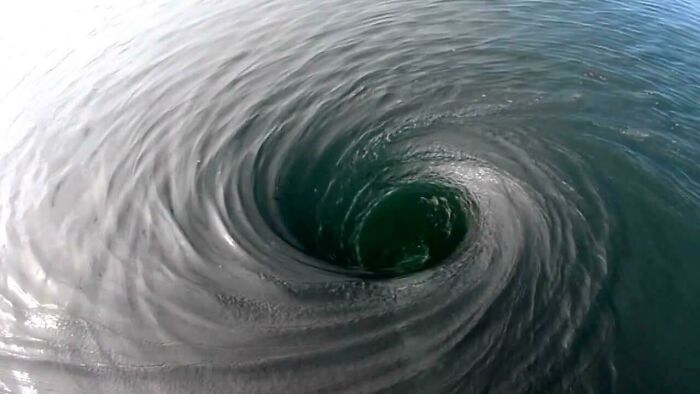
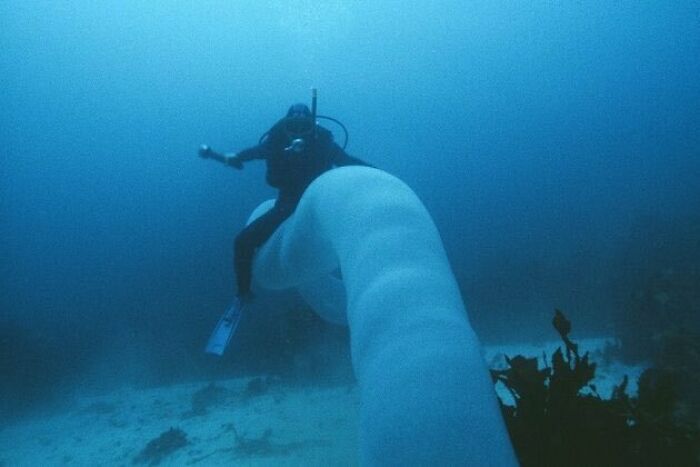
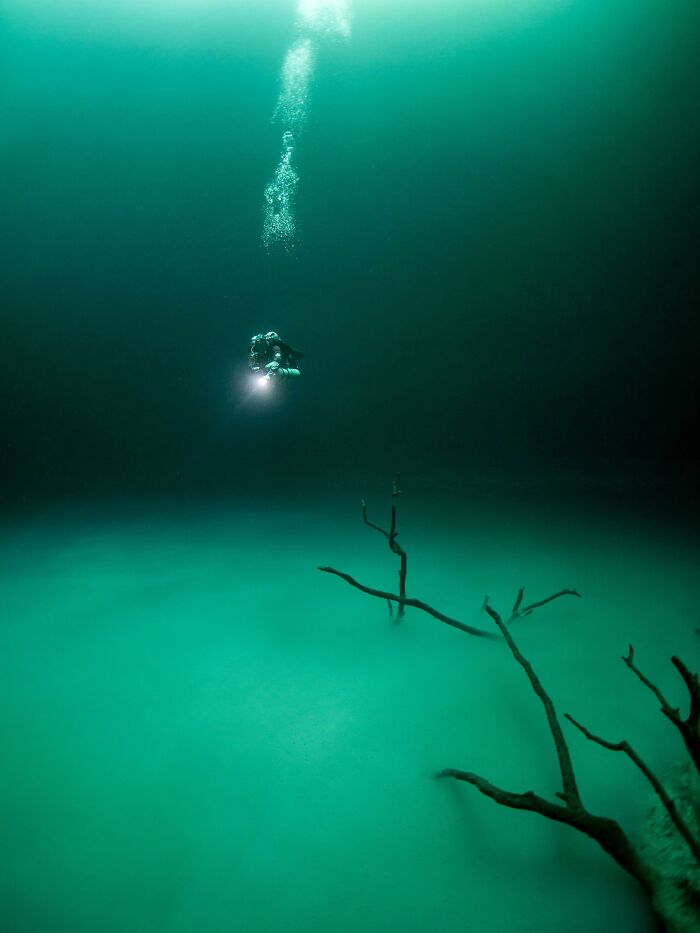
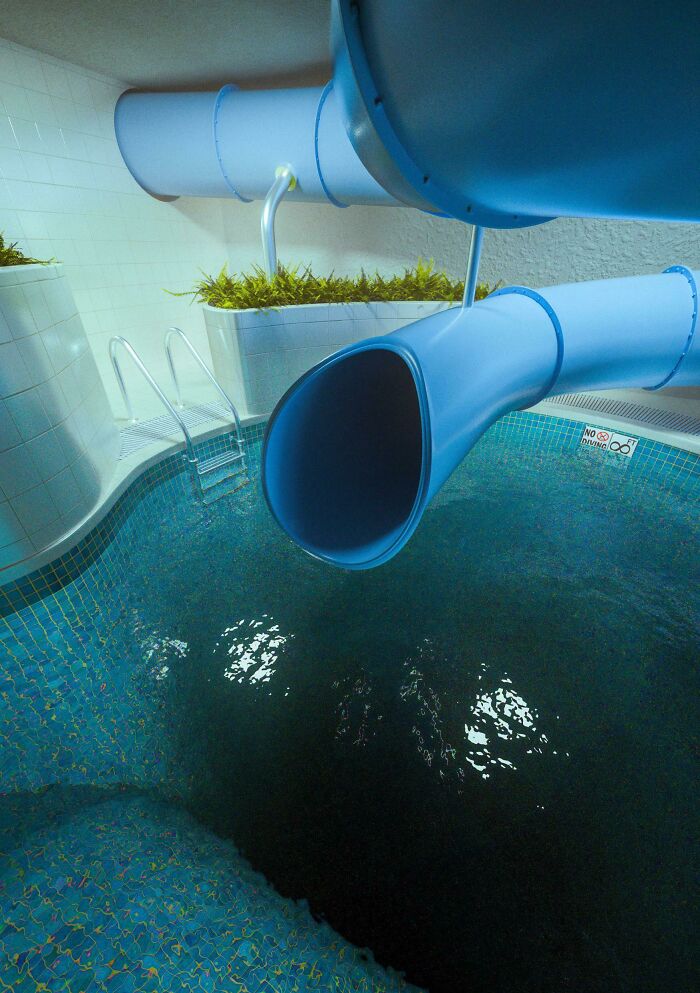
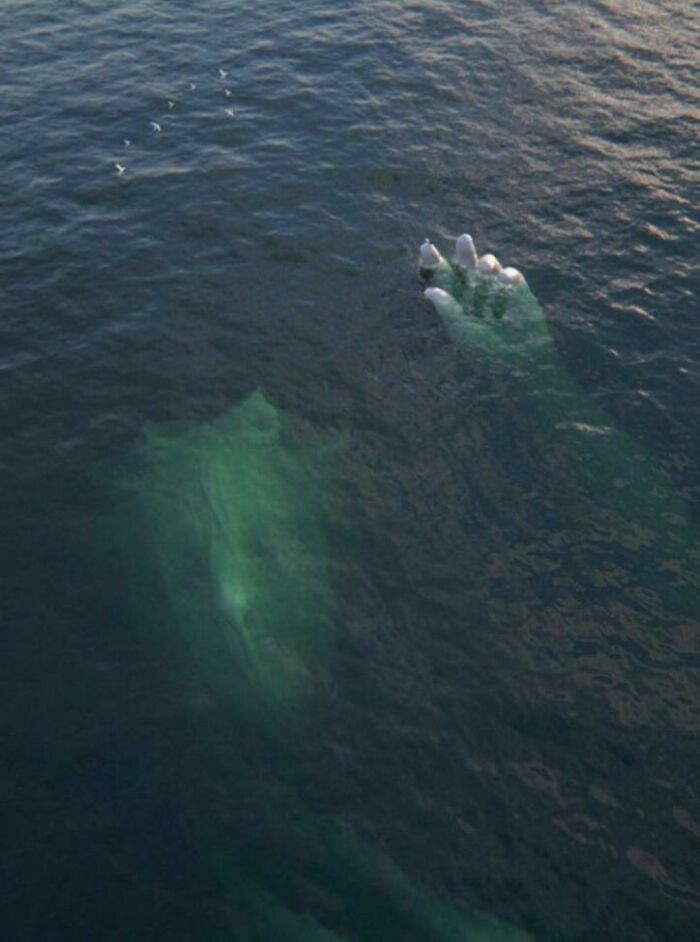
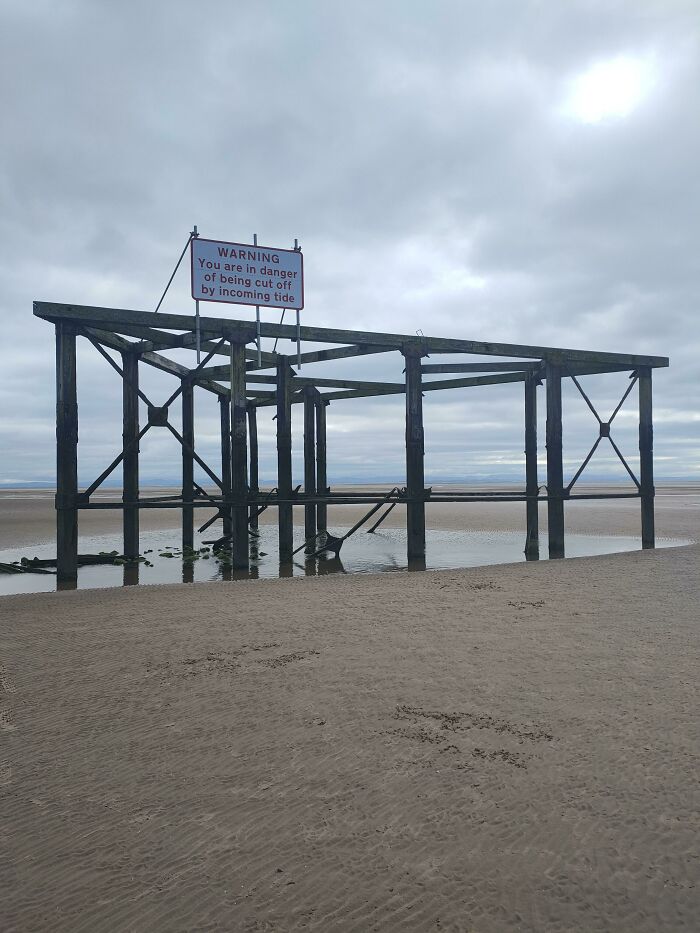
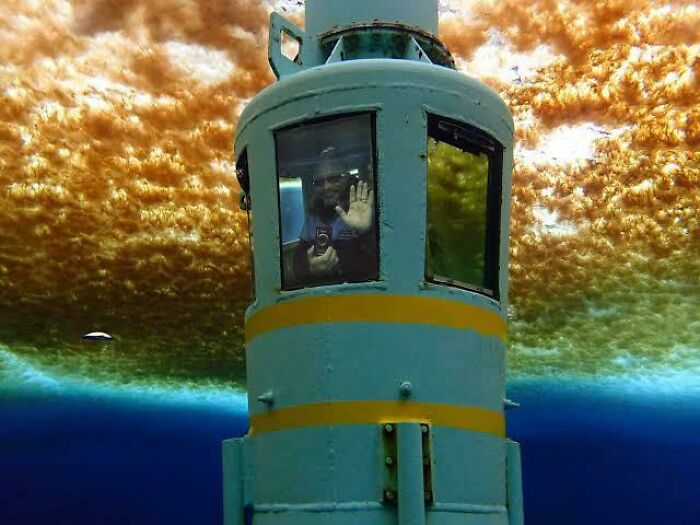
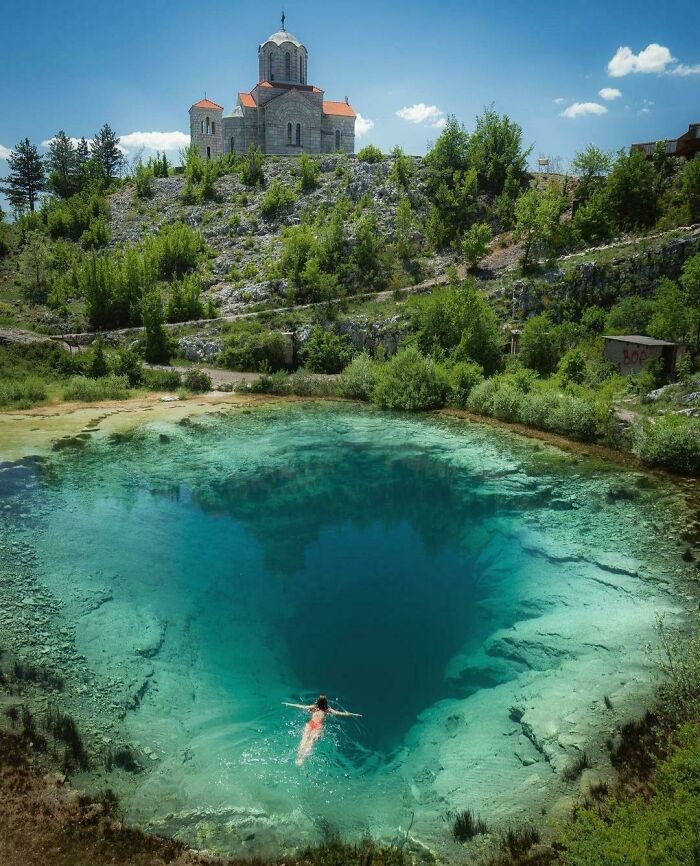
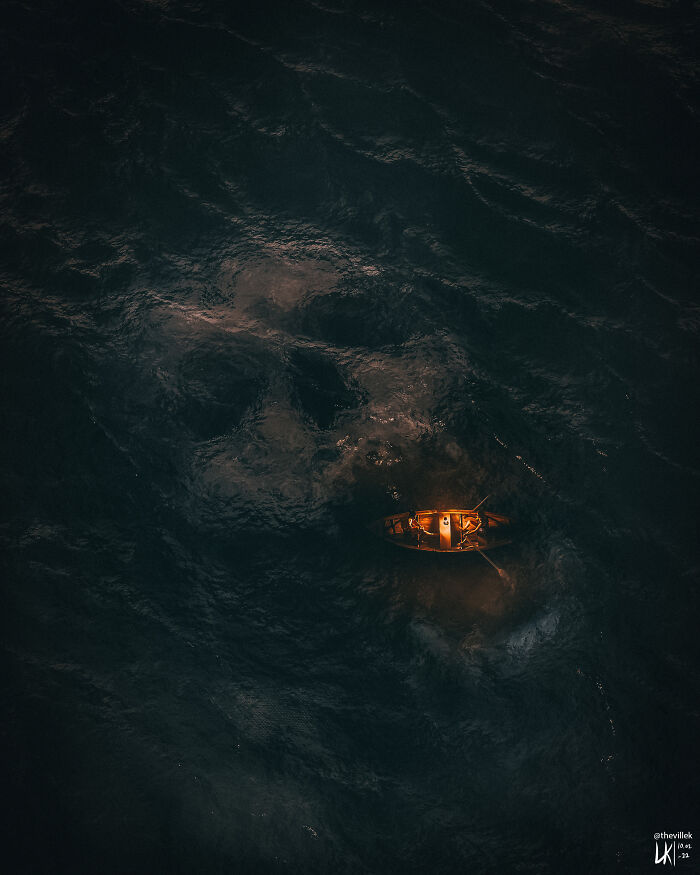
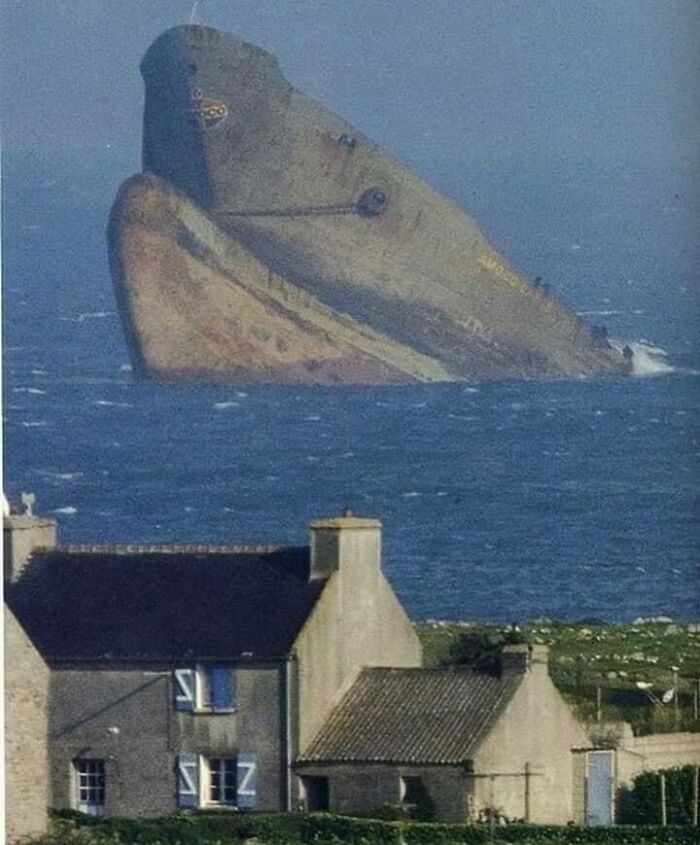
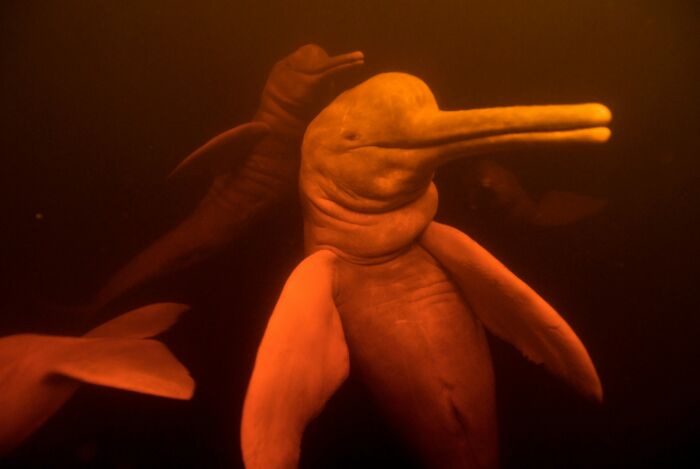
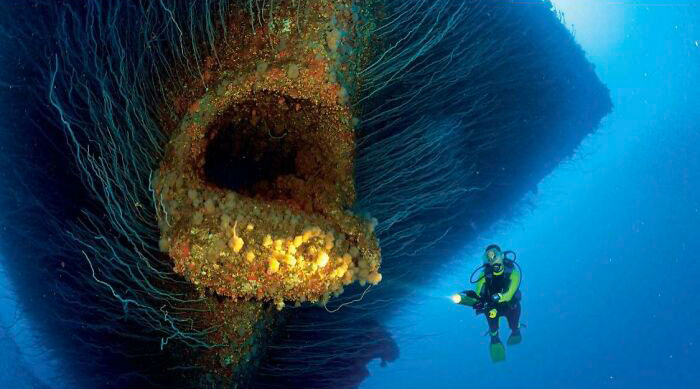
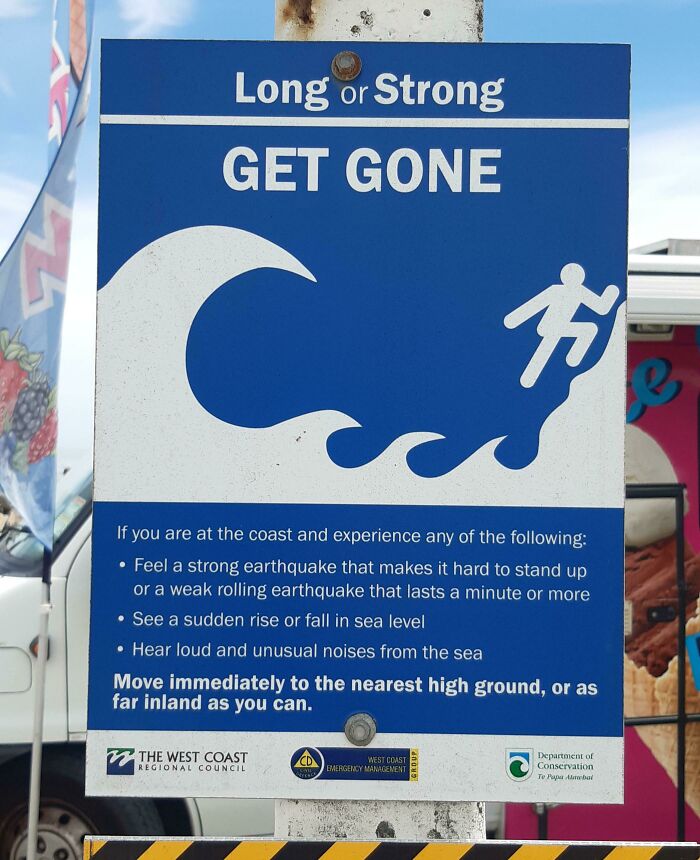
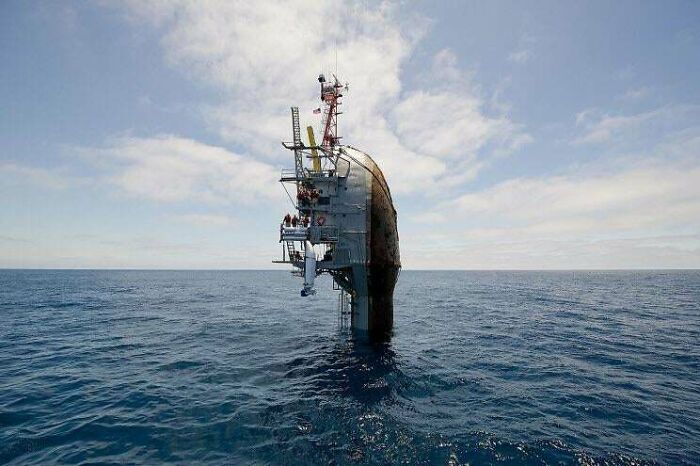
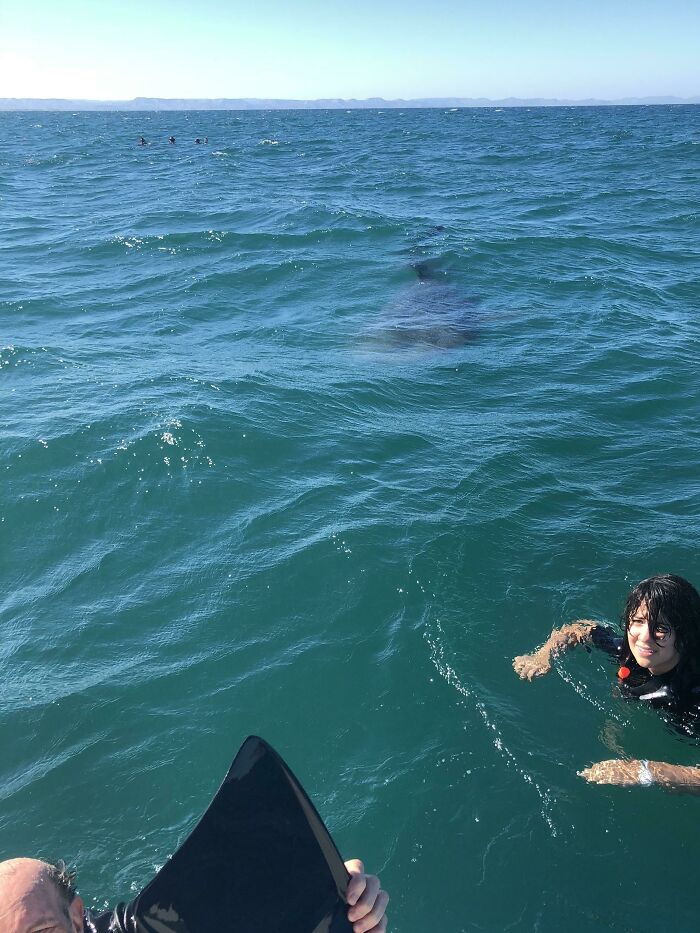
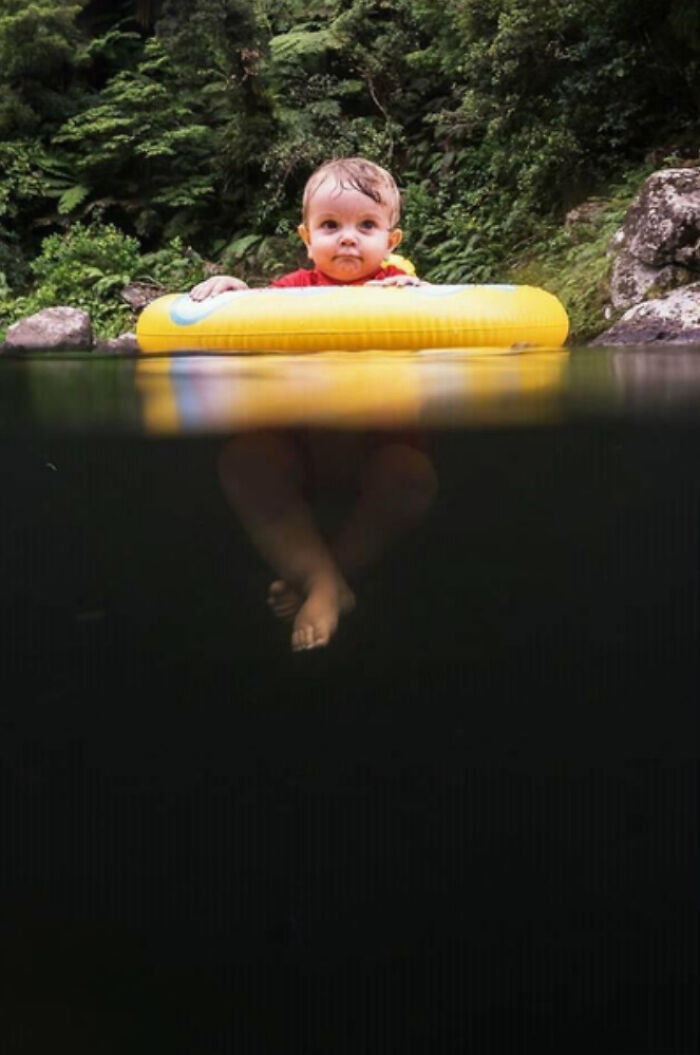
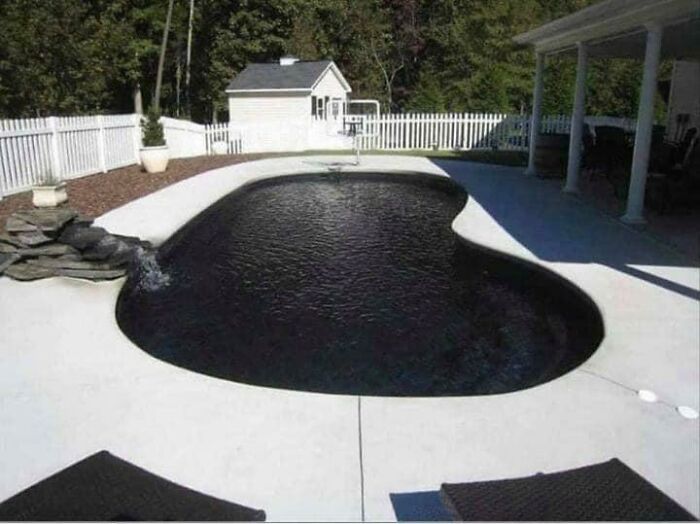

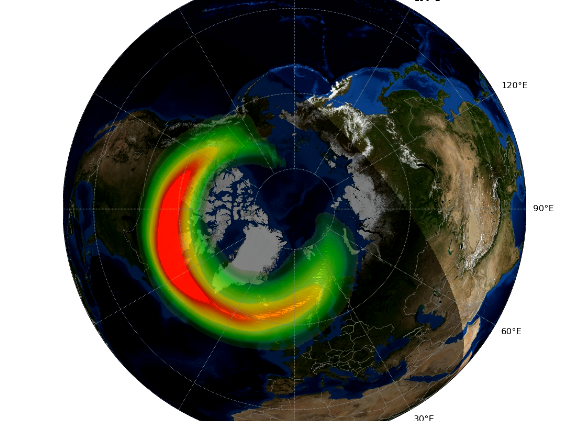
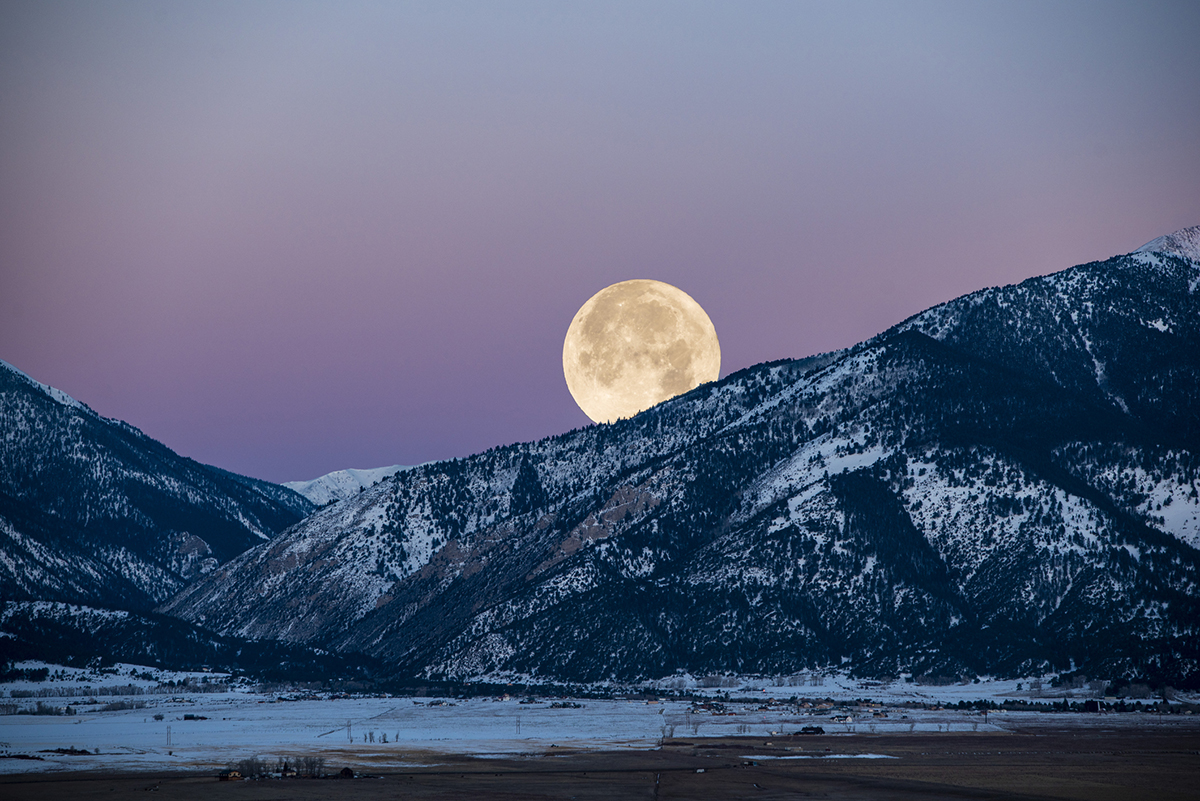
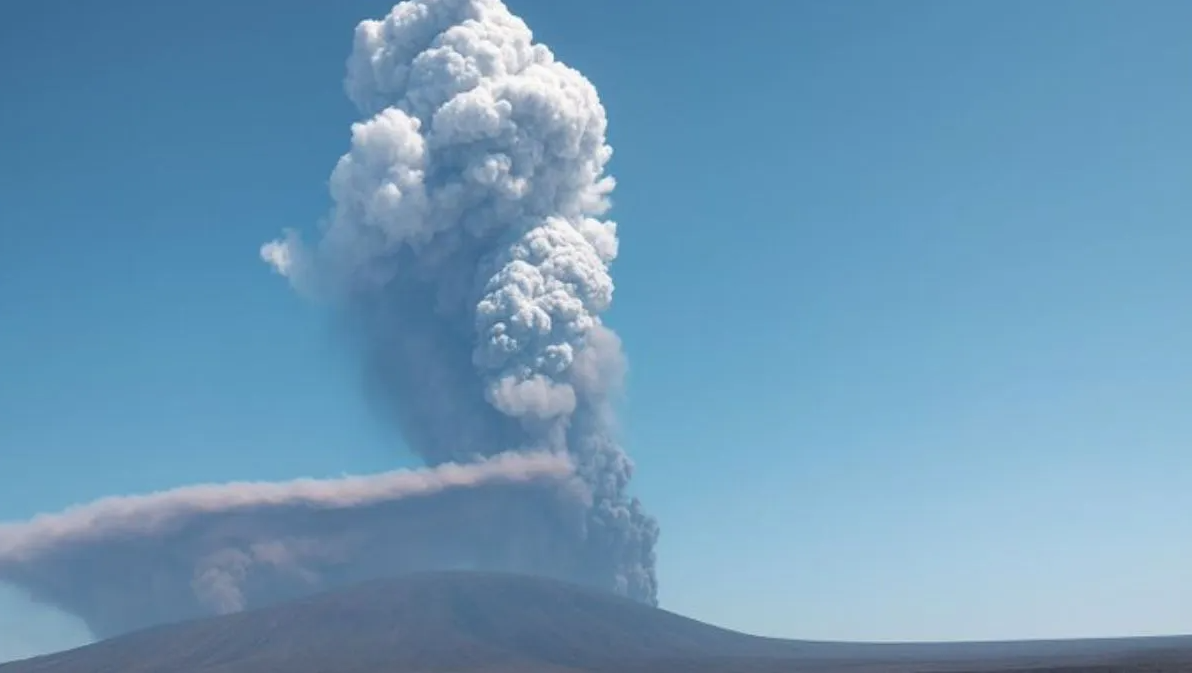

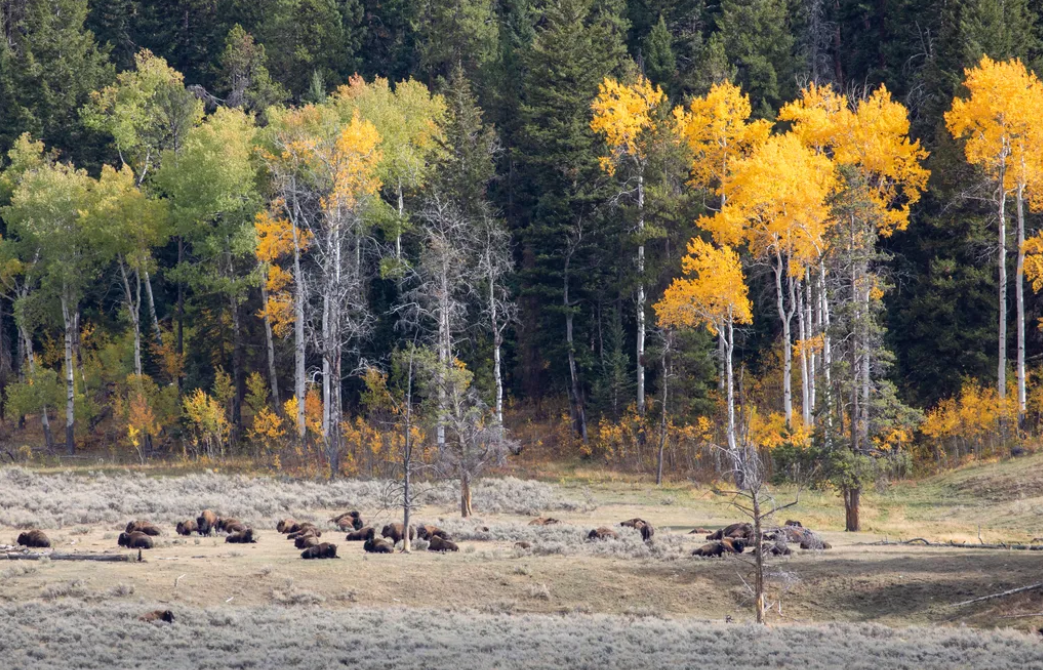

 Photographer Finds Locations Of 1960s Postcards To See How They Look Today, And The Difference Is Unbelievable
Photographer Finds Locations Of 1960s Postcards To See How They Look Today, And The Difference Is Unbelievable  Hij zet 3 IKEA kastjes tegen elkaar aan en maakt dit voor zijn vrouw…Wat een gaaf resultaat!!
Hij zet 3 IKEA kastjes tegen elkaar aan en maakt dit voor zijn vrouw…Wat een gaaf resultaat!!  Scientists Discover 512-Year-Old Shark, Which Would Be The Oldest Living Vertebrate On The Planet
Scientists Discover 512-Year-Old Shark, Which Would Be The Oldest Living Vertebrate On The Planet  Hus til salg er kun 22 kvadratmeter – men vent til du ser det indvendigt
Hus til salg er kun 22 kvadratmeter – men vent til du ser det indvendigt  Superknepet – så blir snuskiga ugnsformen som ny igen!
Superknepet – så blir snuskiga ugnsformen som ny igen!  Meteorite That Recently Fell in Somalia Turns Out to Contain Two Minerals Never Before Seen on Earth
Meteorite That Recently Fell in Somalia Turns Out to Contain Two Minerals Never Before Seen on Earth  Nearly Frozen Waves Captured On Camera By Nantucket Photographer
Nearly Frozen Waves Captured On Camera By Nantucket Photographer  It’s Official: Astronomers Have Discovered another Earth
It’s Official: Astronomers Have Discovered another Earth 